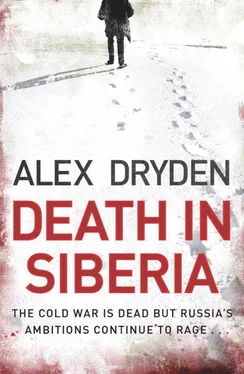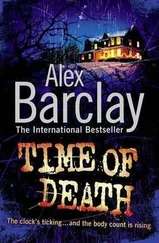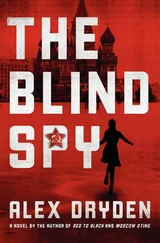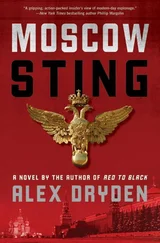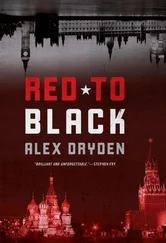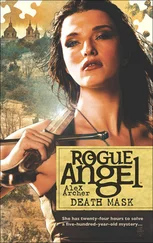To Anna, that was the kind of man her father was and had always been. But when she’d seen the photographs in a hotel room in Geneva, and recognised his apartment, the well of her hatred for him exploded.
And so his sudden death, as well as being a body blow, was also a cause for her celebration.
But it was actually the body blow that accompanied the news that was more complex. For in a subtle and inverse way, it was her father who had provided the incentive for her to be as good as she became, to be better than any other graduate of the KGB’s foreign intelligence service, and to become its youngest female colonel. As the old Soviet empire collapsed in 1989, she had initially decided to take her revenge on him by being better than he was at the same game, the spy game, to be more senior and successful, a greater operative and hero than he had been. And she’d decided back then that she would do this in a country that was apparently turning to democracy for the first time in its history.
That was to be her revenge on him, simply to be better than him, in a better cause.
But Russia’s democracy soon turned out to be an illusion. She’d watched her father then, gloating once more as Putin’s spies seized the country. And after she’d seen the photographs, she’d done the only thing she could think of to damage him most. Her defection brought him a shame and humiliation in the dying years of his life which could not have been made greater by anything else she might have done. And it was a far greater revenge. At the end of his life, he was disgraced in the eyes of his superiors, shunned by his peers, because of the defection of his daughter. He was destined for no place in history, and an unmarked grave.
As Anna now sat in the truck that bounced them all from side to side on the Mongolian military road, she wondered where that incentive to excel at her work would come from now that he was dead. She no longer had a personalised hatred against which to struggle. Her father was gone – and good riddance – but was she the same person she’d been when he was alive?
She turned away from the window and back to the track ahead, focused again on the present.
They’d left the last proper metalled road at the Mongolian settlement of Dzuungovi and headed north to the lake along the deserted military track. She heard the two pumped-up special forces men talking under the tarpaulin in the back, armed to the teeth in case of trouble. They were talking loudly over the noise of the truck.
Larry and a team of five other men had already been watching her route through the gorge for three weeks now, as deep inside it as they’d dared to go, where they could just about survey the border itself two miles beyond. Unlike other stretches, they’d confirmed this area was relatively clear, the way through deemed by the Russians impossible for any infantry attack and a complete barrier to any vehicle. The locals said that even a horse couldn’t make its way through the gorge. Only the eagles and the agile Siberian big horn sheep could move around in these mountains – or a determined and lucky mountaineer.
Larry didn’t like the prospect of her going over at all, but to cross over here seemed madness. There were fewer border guards for a very good reason.
But Anna, as always, had prevailed with Miller – initially with gaining the assignment in the first place and then with the chosen method to reach the start point. If she made it across tonight it was still two hundred miles by bus from Erzin just across the border to Kyzyl further inside Russia, then another three hundred miles to Abakan and a hundred miles or so after that to Krasnoyarsk. And Krasnoyarsk was just where her mission began.
It was a few minutes after midnight when Larry heaved the truck off the road and into some pasture. Anna saw a corral roughly made with untrimmed branches inside which were several horses. There was a man, too, in the corral, one of Larry’s who had been assigned this part of the mission; he was a former cowboy from Montana, Larry had told her. Larry turned the key to Off, the engine died and the cowboy unhooked the crude gate and approached. Anna was already out of the cab, taking the leather coat and the pack and gear with her. She put on the coat and dropped the rest of her equipment in the grass. In the open air, it was icy cold after the heated cab.
She nodded to the man without a greeting, though whether he saw her nod in the darkness was doubtful. Nervous, the man thought, nevertheless. But in her relentless pursuit of perfection in her work, Anna Resnikov had never yet been afflicted by nerves.
She walked with the man over to the corral as Larry and the others stepped out of the truck.
She saw that the horses were native Mongolian; short legs, big heads, extremely hardy animals that lived through very hot summers and minus forty-degree winters with equanimity.
‘I recommend him.’ The cowboy indicated the horse nearest to the front. ‘Look at him. He’s eager to get going. You can gallop him for twenty miles. He won’t tire. Or when he does, you’ll already be at the mouth of the gorge.’
Anna touched the muzzle of the horse and felt his forelegs. They were immensely strong. ‘Okay,’ she said.
She swung herself into a high saddle and her pack and climbing gear were strapped on to the rear of the saddle by the men.
‘When you get there, release him and give him a tap,’ the cowboy said. ‘He’ll come home by himself.’
Larry came up to her.
‘Remember, Anna. Get rid of everything before you cross,’ he said urgently. ‘Including the gun.’
‘Don’t worry, Larry. I will.’
But she knew Larry would worry anyway. He’d become almost like a personal bodyguard, Burt Miller’s shadow who had followed her for three years now. But here he couldn’t follow. That was what always bothered him.
The horse was good. She reached the entrance to the gorge in under two hours at a gallop. Should she go through now? Or wait for another night? She got down and unstrapped the pack and gear and tapped the horse on the rump. It didn’t like to leave her. She smiled up at it. ‘Go on,’ she said. ‘It’s finished.’ She tapped it again and the horse turned, began to trot and then broke into a canter into the dark plains.
Before it was lost in the darkness she heard it whinny once.
Anna slung the pack over her shoulders and looped the cordage around her neck. The rest of the equipment she hung from various belts and over the top of the pack. Then she began to walk.
There was a way along the bank of the river at first. The water was icy clear, tinkling and rushing over black and red rocks. It caught the moon until the walls of the gorge rose up high around it and shut out the thin fingernail of light. Soon she was winding around overhangs, sometimes walking into the edge of the water to clear the towering rock. The route became harder. She was climbing so far without the gear. Then there was a high, flat rectangle of pasture that she climbed towards, and she had an easy way for a while. All the time the unmarked route rose upwards, sometimes gradually, sometimes sharply, towards the gap between the snow peaks.
Once, as she was crossing up high above the river, she caught sight of the moon again and then she dipped down a scree slope and it disappeared behind the crags once more. Where the gorge was at its most forbidding, she stopped finally to rest before the final assault.
Her mission filled her mind in those moments of quiet, the noise of the river too far below now for her to hear it.
Some six hundred miles lay ahead of her before she would reach Krasnoyarsk. Then it depended on her finding a way downriver towards and beyond the Arctic Circle. That was another fifteen hundred miles as the river flowed. Intelligence suggested that the scientist, Professor Vasily Kryuchkov, was in or around Norilsk. But it was possible they’d moved him further east, to the secret nuclear development facilities in the Putorana mountains, where the grim guardians were also hidden – the missiles of Russian’s northernmost ICBM, their Intercontinental Ballistic Missile site. It was from this nuclear research and development facility that reports of Kryuchkov’s discovery had filtered – in hearsay, in dribbles of information sufficiently reliable only in as far as it required her mission to confirm or deny them. But if the talk were true, what Kryuchkov had finally discovered was too momentous to ignore. And there were other pointers that had indicated to Burt Miller that the talk was true. Three recent visits by nuclear scientists from the West had resulted in no meeting with Kryuchkov and the Russian scientist had been forbidden to travel to international nuclear forums in the West for over a year now.
Читать дальше
